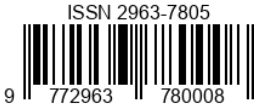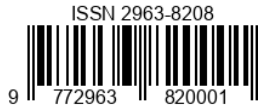Pengendalian Kualitas Menggunakan Metode Seven Tools Dan Kaizen Produk Polypropylene Pada PT KMPI
DOI:
https://doi.org/10.55606/jtmei.v2i2.1861Keywords:
Polypropylene, Seven Tools, Reject, KaizenAbstract
PT KMPI is an industrial company that produces textiles and plastics, including plastic products made of polypropylene (PP). The problem that occurs in PT Kusuma Mulia Plasindo Infitex is the quality of the products that still have defects, based on the results of the analysis in February 2023 with a total production of 76,596 kg there are rejects data of 4,695 kg and the percentage of product defects that occur is 6.1%. The objective of this study is to determine the predominant types of defects that influence the factors that cause defects. This study uses the seven tools method to find the root cause of the problem to be solved, as well as the Kaizen Five-M checklist and the Kaizen Five Step Plan to suggest improvements to the company. Based on the results of data processing, there are three types of defects, namely wrinkle defects with a percentage of 43% for a total defect of 2039 kg, medium wrinkle defects with a percentage of 45% for a total defect of 2094 kg, and thick-thin defects with a percentage of 12% for a total defect of 562 kg. From the fishbone diagram, it can be seen that the occurrence of defects is caused by several factors, namely people, materials, methods and machines. Suggested improvements using the Kaizen Five-M checklist analysis are training and monitoring of production, implementation of SOPs (Standard Operating Procedures) established by the company, such as dosing the mixture of plastic seeds with addictive substances at a ratio of 25 Kg. 1 oz. and Kaizen management control: 1 Ons and Kaizen five-step plan management controls, namely Seiri, Seiton, Seiso, Seiketsu, Shitsuke. This includes pre-job briefings and periodic assessments, and the establishment of standard operating procedures for the supervision of single-table melting machines with a melting temperature of 160-166oC.
Downloads
References
Pansewidi, A., Fangidae, R,. & Makatita, F,Reyner,. (2020) analisis pengendalian kualitas produk di cv. Bilo datang journal of management : small and medium enterprises (smes), 12(2). 60-63.
Sepriandini, F., & Ngatilah, Y. (2021). Penerapan metode six sigma dan failure mode and effect analysis (fmea) pada analisa kualitas produk koran di pt. xyz balikpapan. In tekmapro : journal of industrial engineering and management (vol. 16, issue 02).57-60
Supriyadi, E. (2018). Analisis pengendalian kualitas produk dengan statistical proses control (spc) di pt. Surya toto indonesia, tbk. In jitmi (vol. 1).80-84
Darmawan, H., Hasibuan, S., & Hardi Purba, H. (2018). Application of kaizen concept with 8 steps pdca to reduce in line defect at pasting process: a case study in automotive battery. International journal of advances in scientific research and engineering, Vol. 4 (8). 97–107.
Matondang, T.P. & Ulkhaq, M.M. (2018) “Aplikasi seven tools Untuk Mengurangi Cacat Produk white body pada mesin roller,” Jurnal Sistem dan Manajemen Industri, 2(2). 59-63.
Laurentine, L.E., Ahmad Safar Tosungku, L.O. & Fatimahhayati, L.D. (2022) “Analisis Pengendalian Kualitas produk Sepatu Menggunakan Metode six sigma Dan Kaizen Pada cv. Sepatu Sani Malang Jawa Timur,” Profisiensi: Jurnal Program Studi Teknik Industri, 10(1). 41–48.








